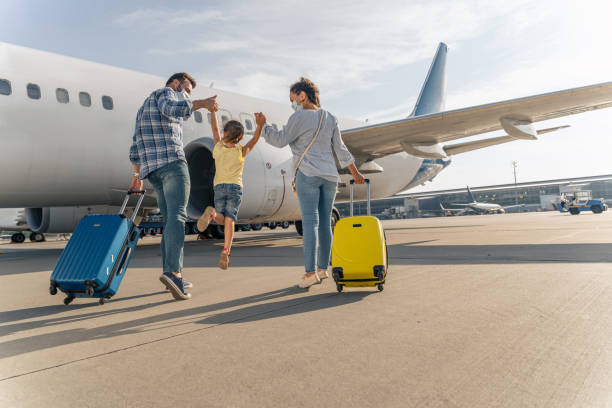Your blood pressure could rise
If you suffer from high blood pressure it doesn't mean you can't travel by plane, it just means you have to be cautious. Make sure to stand up and move around the plane when it is safe to do so. Avoid eating salty snacks and consuming alcohol and sedatives.
How does altitude affect blood pressure?
High blood pressure, or hypertension, is defined as a reading above 130/80 mm Hg for most people. Roughly half of all Americans have some degree of hypertension. The condition increases your risk of both heart attack and stroke, and it contributed to some degree to more than half a million deaths in 2019 alone. The risks associated with high blood pressure exist at any elevation. But studies have shown that people who live in high altitude areas have an even greater risk of developing high blood pressure. Other health risks at high altitudes include:- decreased oxygen levels
- pulmonary hypertension
- right-sided heart failure
- increased red blood cell production and concentration
- higher arterial pressures
Risks of flying with high blood pressure
Generally speaking, people who regulate their high blood pressure with medication are not likely to have an increased risk of health problems at higher altitudes. But this risk increases with poorly controlled or severe high blood pressure. There is little data on monitoring changes in your heart health with just occasional flying. But a 2021 study found that even healthy men without any heart disease had a 6 percent increase in blood pressure during commercial flights. Anxiety and other issues that might arise during a flight can also contribute to symptoms and increase your blood pressure. According to the Centers for Disease Control and Prevention (CDC), medical emergencies occur in about 1 in 600 flights. The most common medical emergencies on flights are:- syncope or dizziness
- breathing problems
- nausea or vomiting
- heart problems
- seizures
Tips for flying with high blood pressure
If you have high blood pressure, talk with your doctor about managing your blood pressure with medications and lifestyle changes. If you take regular medications to manage your blood pressure, pack them to have them with you on the flight. The dry conditions in the cabin may also lead to dehydration, which can sometimes cause your blood pressure to rise. Be sure to drink enough water and stay hydrated before, during, and after your flight. Here are some other tips for people with high blood pressure who plan to fly:- Discuss your travel plans with your doctor.
- Limit alcohol and caffeine consumption during your flight to avoid dehydration.
- Be aware that airline food may contain a lot of sodium that can increase your blood pressure.
- Avoid sedative and hypnotic medications during your flight.
- Don’t use decongestants that can increase blood pressure.
- Wear loose, comfortable clothing.
- Get up and walk around every 2 hours or so during your flight.
- Keep moving between walks with simple exercises in your seat to promote circulation.
- Alert the flight crew about any concerns or medical symptoms you begin to experience.
Frequently asked questions
Can I bring a blood pressure monitor on a plane?
Yes. You’re permitted to bring medical devices, including blood pressure monitors, in your carry-on bag. But there may be some limitations to devices with lithium batteries or other prohibited materials.Is blood pressure medication allowed in my carry-on?
Yes. You’re allowed to bring prescription medications with you on your flight. It’s best to have an adequate supply of your blood pressure medication with you. Keep your medications in their original container with your prescription information visible.Can I take motion sickness medications, like Dramamine, if I have high blood pressure? Will it interfere with my blood pressure medication?
Dramamine and other forms of dimenhydrinate are not known to interfere with blood pressure medications and should be safe to use with or without blood pressure medication. It’s always good to check with your doctor about possible interactions between your prescription medications and over-the-counter medications.Takeaway
For most people, flying is a safe way to travel, and it won’t interfere with most health conditions. Spending a lot of time on planes or flying with unmanaged blood pressure may be riskier. Limit your chances of developing blood pressure complications from flying by getting your blood pressure managed before your trip. Be sure to pack enough of your medications for your entire flight.A retrospective study that included 16 913 TIB-HLs reported a significant correlation between altitude and the prevalence of hypertension with a 2% increase for every ≈100 m (≈330 ft)-increase in altitude above 3000 mASL (≈9800 ft).







